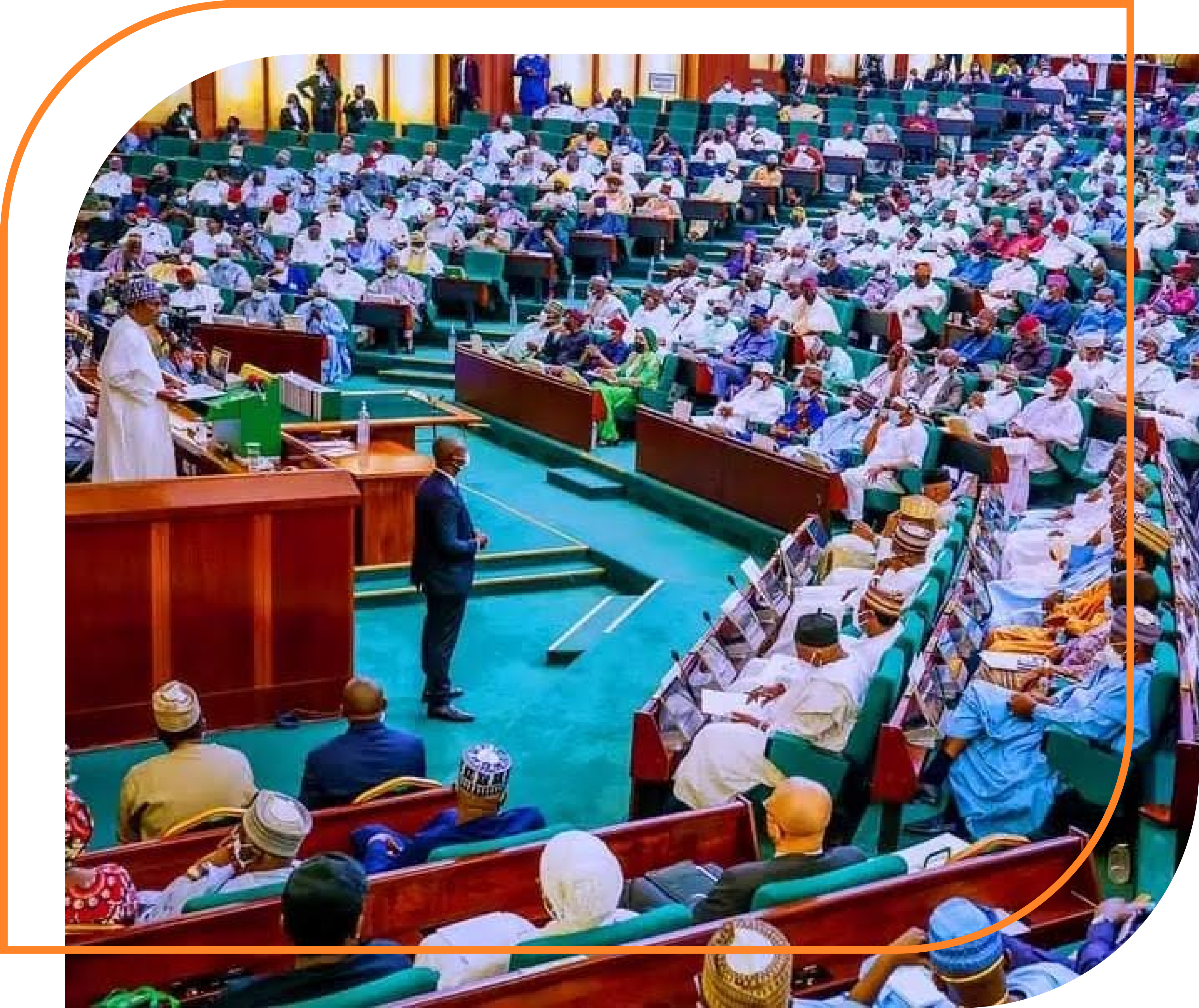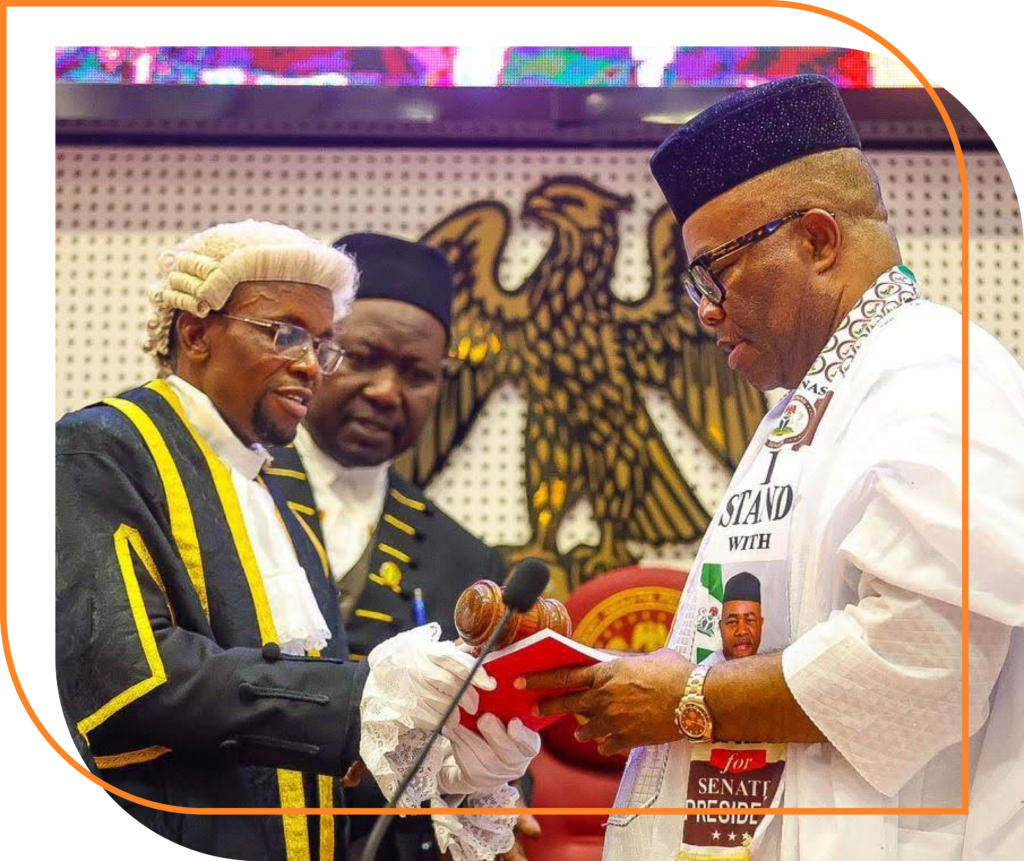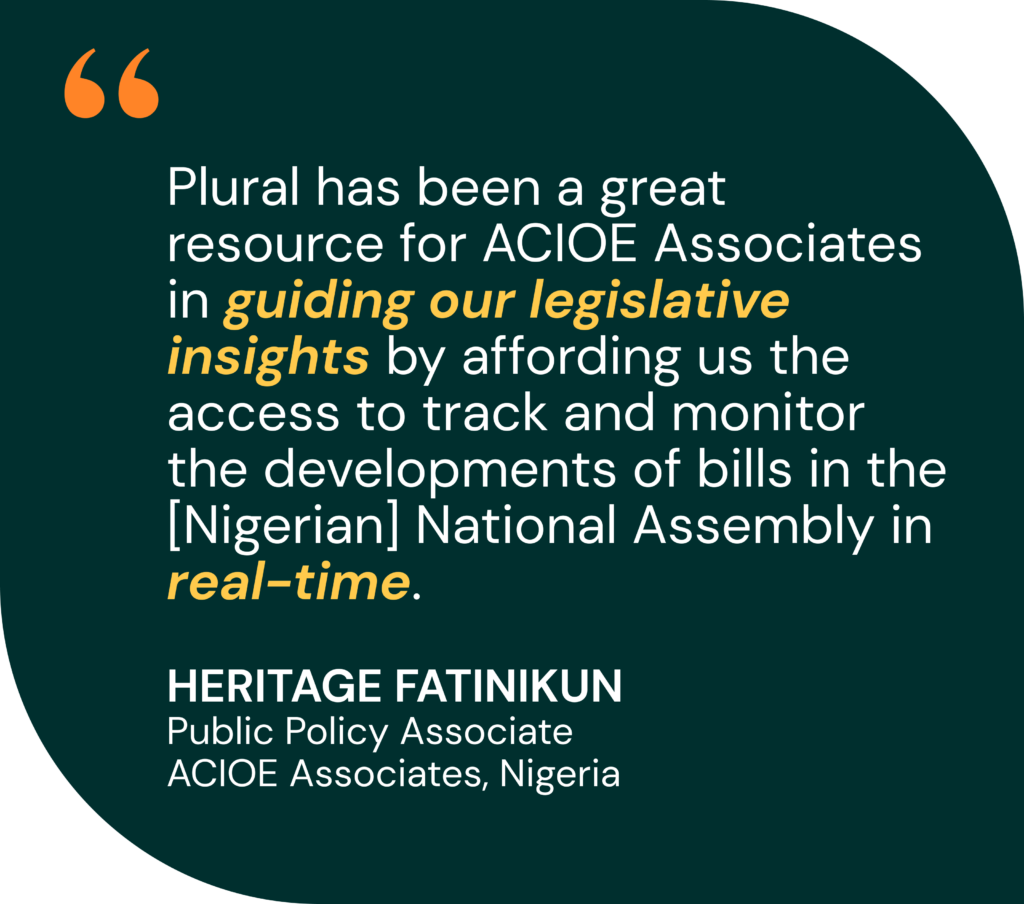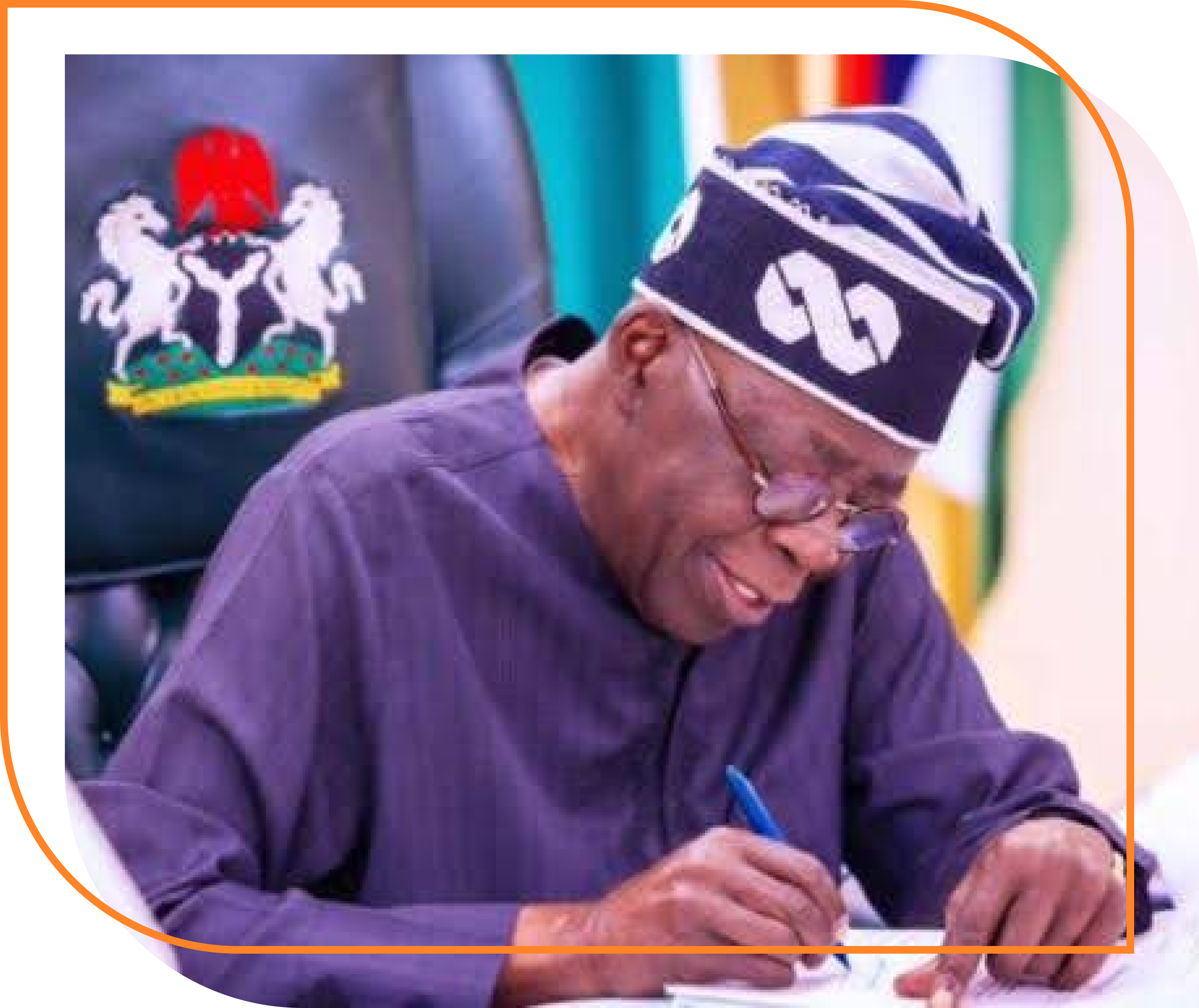The Federal Republic of Nigeria has a clearly defined legislative procedure from which its laws are formulated. This procedure ensures that proposed laws are carefully considered and discussed before becoming nationally enforceable. Like most contemporary nations, Nigeria’s government comprises the executive, legislative, and judicial branches. All branches of government are assigned certain duties as stated in the Federal Republic of Nigeria’s 1999 Constitution (the “Constitution”). Interpreting and enforcing the law should ideally fall to the judiciary and executive branches. On the other hand, the legislature oversees passing laws that govern Nigeria and is acknowledged for its ability to do so. The Senate and the House of Representatives are Nigeria’s two main legislative bodies, known as a bicameral legislature.

Both chambers combine to form the National Assembly, which is authorized by the Constitution’s section 4(1) to enact legislation for the federation’s good governance, peace, and order. At the federal level, the Chief Justice of the Nigerian Supreme Court oversees the judiciary, the President of the Federal Republic of Nigeria leads the executive branch of government, and the President of the Senate leads the National Assembly. At the state level, the Speaker of the State House of Representatives leads the Legislature, the Governor leads the Executive branch, and the Chief Judge of the State’s High Court leads the Judiciary.
Understanding the legislative process is crucial, as it allows for the informed participation of citizens who can engage with their representatives, voice their opinions on proposed laws, and even attend public hearings. Furthermore, transparency is strengthened when the public understands how laws are debated and voted upon, holding lawmakers accountable for their decisions. It allows us to be informed citizens who can track the development of laws that impact our lives. Whether it’s a new tax law or a change in environmental regulations, bills can significantly affect our daily routines, rights, and responsibilities.
The Nigerian Legislature
Nigeria as a nation operates a legislature that legislates on behalf of its populace, it is founded on the most fundamental democratic ideas and ethics. The Nigerian democracy thrives on a system of checks and balances with the National Assembly holding legislative power. This bicameral legislature is comprised of two chambers: the Senate and the House of Representatives – serving as the cornerstone of Nigeria’s lawmaking process.
Composition and Structure
- The Senate: Often referred to as the “Red Chamber,” consists of 109 Senators, with three representatives from each of the 36 states and one from the Federal Capital Territory. Senators are elected for four-year terms.
- The House of Representatives: Known as the “Green Chamber,” has a larger membership, currently 360 members. Each state’s representation is based on the number of constituencies, ensuring a broader voice for Nigerians. Representatives serve four-year terms as well.
The Senate is headed by the Senate President and Deputy Senate President, the chamber also features eight principal officers who manage its affairs.
The House of Representatives is led by the Speaker and Deputy Speaker. The House has a similar structure with eight principal officers for smooth operation.

Role and Functions of the Legislature in Lawmaking
- Initiating Legislation: Legislators, either Senators or Representatives, introduce bills (proposed laws) for consideration by the National Assembly. These bills address a wide range of issues, aiming to solve problems or improve existing situations.
- Lawmaking Process: The National Assembly doesn’t just vote yea or nay on bills. Legislators engage in a thorough process that includes debates, reviews, and amendments. Committees play a vital role here, scrutinizing bills, proposing revisions, and ensuring they align with the Constitution and national needs.
- Representation: Legislators act as representatives of the people who elected them. They are expected to consider their constituents’ needs and interests throughout the lawmaking process. Public hearings can be part of this process, allowing citizens to directly voice their opinions on proposed laws.
- Oversight: Lawmaking isn’t a one-time act. The National Assembly also plays an oversight role. They monitor how the executive branch implements the laws they create. This ensures that the laws are functioning as intended and that there’s no misuse of power.
- Budget Approval: The National Assembly is responsible for approving the national budget. This involves allocating resources for various government functions and ensuring proper spending. By controlling the purse strings, the legislature can influence government priorities.
Introduction to the Concept of a Bill
A bill is a formal proposal for a new law or a change to an existing one. In the intricate world of lawmaking, a bill serves as the foundation for new legislation. It embodies a proposed law or a significant alteration to an existing one. Think of it as a blueprint outlining the specific details and regulations that, if approved, will become binding rules.
Bills are not laws themselves. They are propositions presented to the legislative body, typically a parliament or congress, to initiate a formal process of debate and refinement. This process ensures that the proposed law is thoroughly examined, potential consequences are weighed, and public input is considered. These bills can cover a wide range of topics, from regulating businesses to protecting the environment to ensuring social welfare. This exclusive function is vested on the National Assembly to make laws for the Federal Republic of Nigeria.
A Bill is simply defined as a draft of a proposed law. There are generally two types: Private and Public Bills.

A public bill may be initiated by a Minister; in which case it is referred to as a “government bill.” A private Member may also initiate a public bill; in which case it is called a “private Member’s bill.”
- A government bill is a written legislative initiative submitted to Parliament by the government for approval and possibly for amendment before becoming law. Such bills relate to matters of public interest and may include financial provisions.
- A private Member’s bill is the text of a legislative initiative submitted to Parliament by a Member who is neither a Minister, a Parliamentary Secretary, a Speaker, or a Deputy Speaker for approval and possibly for amendment before becoming law.
A private bill confers special powers or benefits (beyond or in opposition to the general law) upon one or more individuals or groups, including corporations, or exempts them from the application of a statute. It must be based on a petition signed by the person or people advocating it, and it cannot be introduced by a minister. Hence, the main factor determining whether a bill is public or private is based on the bill’s purpose.
The Lawmaking Process
The Bill Introduction and First Reading
The Bill Introduction and First Reading constitute the first step. After the Clerk receives a copy of the Bill, he gives notice to the members of the relevant chamber. In the case of a Public Bill, the Clerk is required to publish a copy of the Bill in the Official Gazette and send a copy to every member of the relevant chamber. In the case of a Private Bill, the member sponsoring the Bill must move a motion to request permission from the Senate President (or the Speaker of the House, as appropriate) to present the Bill and publish it in two (2) successive issues of the Official Gazette. After publication, a copy of the first issue must be sent to each member of the relevant chamber.
At the first reading stage, the Clerk reads the short title of the Bill, provides a brief statement on what the Bill aims to achieve, and puts it before the Senate President or the Speaker of the House of Representatives, depending on the chamber Bill is presented in. The purpose of the first reading stage is simply to inform legislators of the Bill introduced. There are no discussions or debates at this stage.
The Second Reading and Committee Stage
The Second Reading and Committee Stage come next, during the second reading stage, the merits of the Bill undergo debate and discussion. This phase initiates when the sponsoring member moves a motion for Bill’s second reading. Within this motion, the member outlines the Bill’s purpose, its fundamental principle, and the advantages it offers, advocating for its passage into law. For the motion to progress to the second reading, it must receive support (or “seconding”) from another legislator in the pertinent chamber. Without such support, the motion is deemed rejected and does not advance to the second reading stage. Once supported, the bill is deliberated on by chamber members and subsequently put to the vote on whether it should move to the Committee Stage. If a simple majority of chamber members support the Bill, it advances to the Committee Stage for further review; otherwise, it cannot be debated again until reintroduced later.
Following the second reading, the Bill is directed to the relevant chamber’s appropriate Standing Committee(s). During the Committee Stage, the Committee endeavours to enhance the Bill’s value and may conduct public hearings to involve key stakeholders and the public. The Committee(s) are tasked with providing suggestions, amendments, and recommendations (if any) to the Bill, and they subsequently present their findings to the relevant chamber for further examination.
The Report Stage and Third Reading
The Report Stage and Third Reading commences when the Chairperson of the designated Committee provides a report on the Bill’s progress, after which the chamber, operating as the Committee of the Whole, engages in further deliberations on the Bill. At the conclusion of this stage, a motion may be passed for the Bill to undergo a third reading.
During the third reading stage, the Bill undergoes another reading, and members vote on its passage. Subsequently, the Clerk, along with either the Speaker of the House of Representatives or the Senate President, generates and authenticates a pristine version of the bill, inclusive of all amendments. This endorsed Bill is then transmitted to the Clerk of the opposite chamber with a request for its concurrence, signifying approval from the other chamber.
The Passage to the Other House
The receiving chamber may accept the proposed legislation as presented; in which case it communicates its concurrence without alterations. However, if there are disagreements with the provisions of the Bill from the originating chamber or if amendments are sought, a Harmonisation/Conference Committee must be established independently by the Senate President and the Speaker to reconcile these disparities in the Bill. Typically comprised of members from both chambers, this harmonization committee is tasked with proposing a unified stance that can be adopted by both chambers.
When both chambers endorse the Harmonisation Committee’s report, the Clerk of the originating chamber prepares a clean version of the harmonized Bill for submission to the President for assent. A bill only becomes law after the President signs it.
The Presidential Assent
At this stage, the President must either approve or veto/reject the bill within thirty (30) days of receiving it. Suppose the President vetoes the bill or fails to communicate assent within the specified period; in that case, the National Assembly (NASS) can override the veto with a two-thirds majority vote from both chambers to pass the bill into law. This means the bill becomes law without the President’s assent.
However, this process doesn’t apply to all Bills. For constitutional amendments, the amendment Bill must be supported by a two-thirds majority of members in each chamber of the NASS before it can proceed to a third reading. Once the Federal Legislature approves, it needs a two-thirds majority of the 36 State Houses of Assembly. Another exception is urgent state matters like passing the National Budget, where the NASS can suspend its procedure to promptly address such critical issues.
The Publication and Commencement
The bill is now passed into law.

Potential Reforms to Improve the Nigerian Legislative Process
The Nigerian legislative process faces some challenges that could be improved through reforms.
- Citizen Input: There could be more opportunities for citizens to provide feedback on proposed legislation. This could involve online platforms, public forums, and improved communication between legislators and constituents.
- Think Tank Involvement: Collaboration with research institutions and think tanks could provide legislators with non-partisan policy analysis and expertise.
- Timely Action on Bills: Setting deadlines for committee reviews and votes on legislation could help prevent bills from languishing. Implementing a digital system to track bill progress will allow legislators and the public to monitor it more easily.
- Strengthening Oversight: The legislature should more effectively hold the executive branch accountable for its actions. This could involve more robust committee oversight hearings and stricter enforcement mechanisms.
- The Role of the Law Reform Commission: The Nigerian Law Reform Commission has a role in proposing legislative reforms. Strengthening its capacity and ensuring its recommendations are implemented could be beneficial.
- Constitutional Review: Debates on restructuring Nigeria’s government and amending the constitution could also impact the legislative process.
- Greater Autonomy and Transparency: Committees could be given more independence to set agendas and conduct in-depth reviews of bills. Public hearings and committee deliberations should be more transparent and accessible.
These are some suggestions that can influence specific reforms when implemented. The Nigerian legislature can become a more robust and democratic institution that effectively represents the people’s will.
Understanding the Legislative Process in Nigeria
Understanding the legislative process in Nigeria is essential for citizens to actively engage with their representatives, contribute to public discourse, and hold lawmakers accountable. Nigeria’s bicameral legislature, comprised of the Senate and the House of Representatives, plays a crucial role in lawmaking, from initiating legislation to overseeing its implementation. Despite the obvious low capacity, political interference, and inadequate public participation, there are potential reforms that can enhance the legislative process. By promoting citizen input, strengthening oversight mechanisms, collaborating with think tanks, and implementing timely actions on bills, Nigeria can build a more robust and democratic legislative framework that serves the interests of its people and fosters national development.
About ACIOE Associates
ACIOE Associates is an advisory services firm providing solutions in strategy, government relations, regulatory affairs, economic development, advocacy, investment facilitation, policy analysis and strategic intelligence in various sectors. Based in Abuja, Nigeria, its mission is to deliver clear and practical business solutions to ease doing business in Africa while creating mutually beneficial opportunities for growth and sustainable development.
Get Started With Plural
With best-in-class public policy data and real-time notifications, Plural is the tool of choice for top government relations teams in Nigeria. Book a demo today to learn more.



